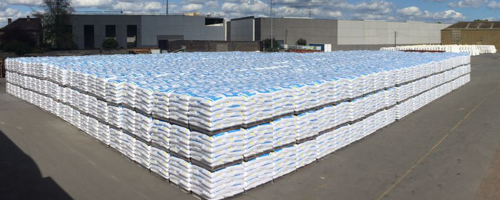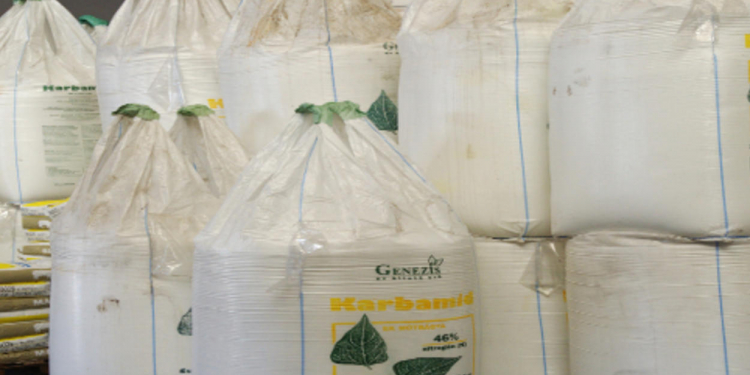Farmers in the US believe that high fertilizer prices are also due to market manipulation. They are calling for an investigation by the judiciary.

A group of farmers in the US has apparently asked the US Department of Justice to investigate whether the recent rise in fertilizer prices may also have been due to market manipulation by fertilizer companies. The group, to which more than 6,000 farmers belong, assumes that fertilizer companies set price “not on the basis of supply and demand, but rather that they are based on the price the farmer receives for his raw materials,” it says in the letter first reported by Reuters and Bloomberg news agencies.
The fertilizer prices have reached world record highs this year, mainly due to record-high prices for the necessary for its production of natural gas, at least analysts say UDN fertilizer producers. In the USA, there were also severe storms such as Hurricane Ida, which interrupted the production of fertilizer and agrochemicals in many large plants.
However, the farmer group claims in their letter that the fertilizer companies may have increased fertilizer prices in response to the high grain prices. This is justified by the fact that there has been a strong concentration in the US fertilizer industry since the 1980s . From the previous 46 companies, the market has shrunk to 13 companies.
For example, two companies, namely Nutrien Ltd and Mosaic Co., control roughly 93 percent of the North American potash market, a 2020 report by the Federal Trade Commission says. In 2019, only four companies accounted for 75% of the production and sales of nitrogen-based fertilizers in the United States. Today the four dominant companies in this sector are CF Industries, Nutrien, Koch and Yara-USA.
According to the assessment of the farmers who are organized in the Family Farmer Alliances, market abuse is likely if the concentration level of the four largest companies exceeds 40%. “If these fertilizer companies tie the price of their products to the solvency of the farmers rather than to supply and demand, that amounts to an almost monopoly exercise of power,” says Philip Howard of the International Panel of Experts on Sustainable Food Systems.
Fertilizer industry denies the allegations
“The structure of this industry has the potential to really exploit farmers,” said Dr. Philip Howard, associate professor at Michigan State University and an expert on food industry consolidation, told Reuters.
Ben Pratt, senior vice president of public affairs at fertilizer giant Mosaic, however, denied that fertilizer manufacturers set prices, saying the current increase was due to many factors as well as “slumped exports from certain exporting countries, including China and Russia, as well as one strong global demand “.
The other top three fertilizer manufacturers did not respond to requests for comments on the allegations, Reuters reported. The Ministry of Justice (DOJ) has not yet responded to a request for comment either. However, the Biden government has pledged to take action to consolidate the agricultural sector that farmers have long said is distorting competition and increasing their costs .
Last year, at the instigation of the then Trump administration, the US Department of Justice investigated possible price manipulation on the cattle market during the Corona crisis. At that time retail price rose while producer prices fell dramatically. Producer associations had also sued at the time. The US Secretary of Agriculture Tom Vilsack recently said that seed patents would also be dealt with.
Family Farm Action Alliance calls on the US Department of Justice to investigate how far the actions of fertilizer companies are distorting the market, what impact this is having on farmers, and whether political intervention is needed to correct such distortions.
The US Treasury Department announced that it would lift the sanctions against potash fertilizer imports from Belarus by April next year. “This is a win for the American farmer,” said Chris Edgington, farmer and president of the National Corn Growers Association. “It is very difficult for farmers to get fertilizers, so this development could not come at a better time.”









